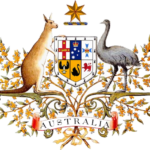Bystander survey: Help to redefine what it truly means to be Australian
Did you know that the most common form of racism in Australia is everyday racism? And it nearly always involves bystanders witnessing it. A research team at CQUniversity is currently recruiting participants to share their experience through an anonymous online journal.
We often hear the expression of being “Australian” used as a catch-all phrase describing our national identity, and usually accompanied with a comforting inference of our uniquely egalitarian social values. However, what have recent events told us about our social attitudes towards tolerance and fairness? And with this in mind what does it really mean to be ‘Australian’ nowadays?
We are once again reminded of the ongoing challenge of eliminating prejudice in our society. The underlying themes of cultural intolerance reflected in the recent Brexit result in particular have demonstrated how quickly discussion can deteriorate to racial intolerance, when ignorance and fear are manipulated. Personally I was quite dismayed to hear the Brexit campaign pointing to Australia and our policies on refugees and immigration as a leading example. And I don’t think we can draw any comfort from the fact this is happening overseas, when it appears our own local institutions still suffer from a lack of cultural awareness. Or in the way that opportunities to publicly celebrate the success of indigenous Australians can uncover an unsettling level of social intolerance, as we saw recently with Ms Peris.
Prejudice, intolerance and racism are closely entwined, sort of like the three heads of Cerberus, dutifully guarding the gates of social power. Chopping the respective heads off starts with us, by challenging the way inequality is subtly ingrained into our social lives. Did you know that the most common form of racism in Australia is everyday racism, which refers to the way racist attitudes are infused into everyday situations through common social interaction? This takes place everywhere; at work, online in social media, in shopping malls – wherever people interact.
So what is everyday racism? It is literally the form of racism we see in everyday situations, perhaps something you observe while out doing the shopping, or comments you notice on Facebook – it’s pervasive, and seeps into our everyday lives. And everyday racism nearly always involves bystanders, who are neither the perpetrator nor target of the racism, but who witness what goes down.
Bystanders can choose to speak out and challenge everyday racism when they witness it, or they can remain passive. It is not easy being a bystander – witnessing racism is upsetting for people who care about equality. Speaking up is never easy to do, and quite understandably we often decide to remain passive, perhaps for fear of conflict or retribution or making ourselves the target. Having said that, current research suggests that witnesses who choose to remain passive can subsequently regret their decision not to speak out.
A better understanding of the factors that influence bystanders will be very helpful in designing effective interventions to support people who witness everyday racism. Over at CQUniversity a team are currently undertaking research with this in mind. The project is currently recruiting participants to share their experience through an anonymous online journal for a short period of time. If you would like to make an important contribution to research and help challenge racism in Australia, you can support their project at the CQU Bystander Survey here, or you can access the survey directly here without visiting Facebook. Perhaps together we can all help to redefine what it truly means to be Australian.
Craig Hackett is a mature aged Honours student in psychology with CQUniversity. With a professional background in banking and financial services, Craig decided several years ago to pursue a life-long interest in psychology. In addition to the application of psychological theory to issues relating to social justice and equity, Craig’s academic interests include the study of individual differences and psychometric assessment, and statistical methods in psychology. When not studying Craig enjoys reading history and PC gaming, particularly 4X genre. He has four adult children and lives in Brisbane with Blackey, his pet Staffordshire Bull Terrier.












